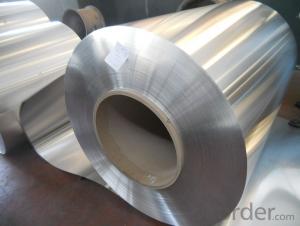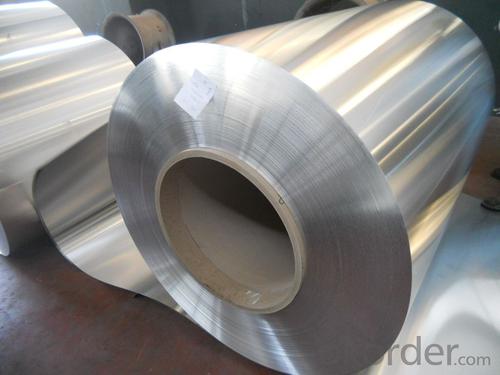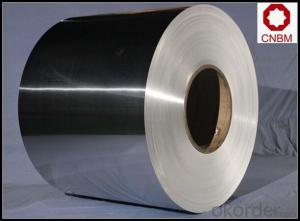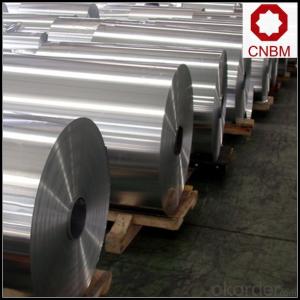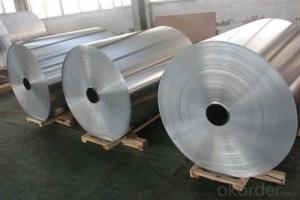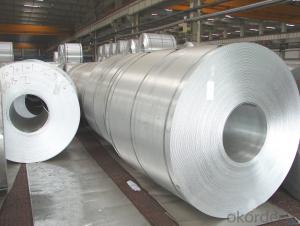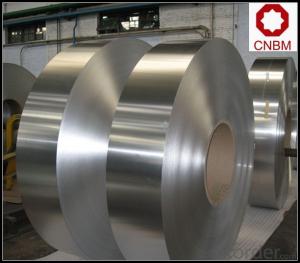1/8 Mill Finish Mirror Aluminum Coil for Channel Letter and Light Fitting
- Loading Port:
- Shanghai
- Payment Terms:
- TT OR LC
- Min Order Qty:
- 5 m.t
- Supply Capability:
- 5000 m.t/month
OKorder Service Pledge
OKorder Financial Service
You Might Also Like
Chemical composition
Chemical composition% | |||||||||
Grade | Si | Fe | Cu | Mn | Mg | Cr | Ni | Zn | Al |
1050 | 0.250 | 0.400 | 0.050 | 0.050 | 0.050 | - | - | 0.050 | 99.50 |
1060 | 0.250 | 0.350 | 0.050 | 0.030 | 0.030 | - | - | 0.050 | 99.60 |
1070 | 0.200 | 0.250 | 0.040 | 0.030 | 0.030 | - | - | 0.040 | 99.70 |
1100 | Si+Fe:0.95 | 0.05-0.2 | 0.050 | - | - | 0.100 | - | 99.00 | |
1200 | Si+Fe:1.00 | 0.050 | 0.050 | - | - | 0.100 | 0.050 | 99.00 | |
1235 | Si+Fe:0.65 | 0.050 | 0.050 | 0.050 | - | 0.100 | 0.060 | 99.35 | |
3003 | 0.600 | 0.700 | 0.05-0.2 | 1.0-1.5 | - | - | - | 0.100 | remains |
3004 | 0.300 | 0.700 | 0.250 | 1.0-1.5 | 0.8-1.3 | - | - | 0.250 | remains |
3005 | 0.600 | 0.700 | 0.250 | 1.0-1.5 | 0.20-0.6 | 0.100 | - | 0.250 | remains |
3105 | 0.600 | 0.700 | 0.300 | 0.30-0.8 | 0.20-0.8 | 0.200 | - | 0.400 | remains |
3A21 | 0.600 | 0.700 | 0.200 | 1.0-1.6 | 0.050 | - | - | 0.10 | remains |
5005 | 0.300 | 0.700 | 0.200 | 0.200 | 0.50-1.1 | 0.100 | - | 0.250 | remains |
5052 | 0.250 | 0.400 | 0.100 | 0.100 | 2.2-2.8 | 0.15-0.35 | - | 0.100 | remains |
5083 | 0.400 | 0.400 | 0.100 | 0.40-1.0 | 4.0-4.9 | 0.05-0.25 | - | 0.250 | remains |
5154 | 0.250 | 0.400 | 0.100 | 0.100 | 3.1-3.9 | 0.15-0.35 | - | 0.200 | remains |
5182 | 0.200 | 0.350 | 0.150 | 0.20-0.50 | 4.0-5.0 | 0.100 | - | 0.250 | remains |
5251 | 0.400 | 0.500 | 0.150 | 0.1-0.5 | 1.7-2.4 | 0.150 | - | 0.150 | remains |
5754 | 0.400 | 0.400 | 0.100 | 0.500 | 2.6-3.6 | 0.300 | - | 0.200 | remains |
6061 | 0.40-0.8 | 0.700 | 0.15-0.40 | 0.150 | 0.8-1.2 | 0.04-0.35 | - | 0.250 | remains |
6063 | 0.20-0.6 | 0.350 | 0.100 | 0.100 | 0.45-0.9 | 0.100 | - | 0.100 | remains |
6082 | 0.7-1.3 | 0.500 | 0.100 | 0.40-1.0 | 0.6-1.2 | 0.250 | - | 0.200 | remains |
6A02 | 0.50-1.2 | 0.500 | 0.20-0.6 | Cr0.15-0.35 | 0.45-0.9 | - | - | 0.200 | remains |
8011 | 0.50-0.9 | 0.6-1.0 | 0.100 | 0.200 | 0.050 | 0.050 | - | 0.100 | remains |
Parameter
| Product | Alloy | Temper | Thickness | Width | I.D(mm) | Application |
| Aluminum Coil/Strip | 1050,1060,1070, 1100,1200,1235, 1145,3003,304, 3105,3A21, 8011 | O H12 H14 H16 H18 H22 H24 H26 | 0.2-8mm | 50-2400mm | 75,150 200,300 400,505 (as customers's request) | construction,decoration, automobile,electronic, machinery,boat construction, aeronatics&astronautics, cookware,packing etc. |
Application:
1) Radiator
2) Condenser
3) Insulation Material
4) Construction
5) Decoration
6) Advertisement and market applications
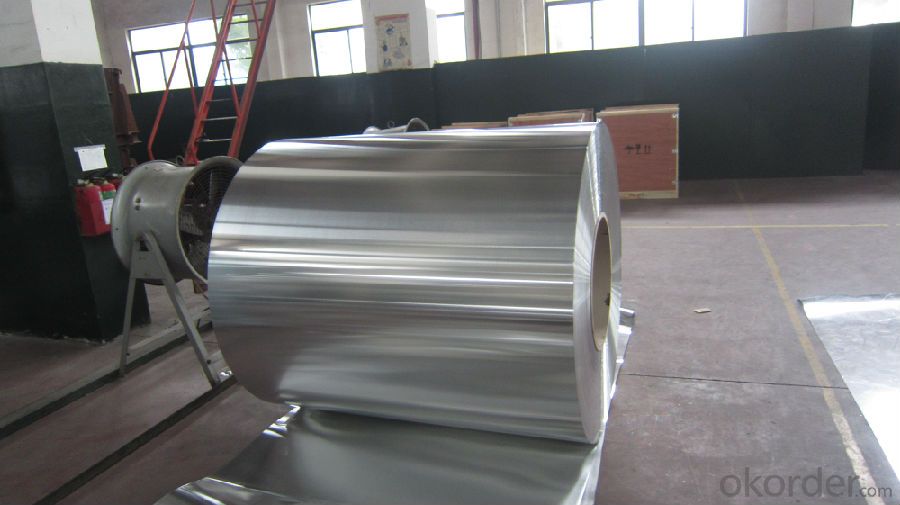
- Q: Are aluminum sheets suitable for use in food processing or packaging industries?
- Aluminum sheets are indeed appropriate for utilization in the food processing and packaging sectors. The food industry extensively employs aluminum due to its exceptional properties and advantages. To begin with, aluminum is a safe material for direct contact with food as it is non-toxic. It does not react with food or affect its taste, guaranteeing the preservation of the original flavor and quality. This is particularly crucial in packaging, as it aids in maintaining the freshness and integrity of the food product. Moreover, aluminum possesses excellent thermal conductivity, enabling efficient and uniform heat distribution during food processing. This attribute is advantageous in cooking, baking, and other thermal procedures, ensuring that food is cooked or processed evenly. Additionally, aluminum sheets exhibit outstanding barrier properties, including resistance to moisture, light, and gases. This shields food from external factors that could potentially degrade its quality, such as moisture or oxygen. It also extends the shelf life of packaged food products. Furthermore, aluminum sheets are lightweight, yet sturdy and durable. This makes them easy to handle and transport in food processing and packaging operations. Their strength and durability ensure that the packaging remains intact and safeguards the food during transportation and storage. Lastly, aluminum is an environmentally sustainable material. It is fully recyclable, meaning it can be reused without losing its properties. This aids in reducing the environmental impact and supports the concept of a circular economy. In conclusion, aluminum sheets are highly suitable for use in the food processing and packaging industries. Their non-toxic nature, thermal conductivity, barrier properties, lightweight yet strong characteristics, and sustainability make them an ideal choice for ensuring the safety and quality of food products.
- Q: Can aluminum sheets be an alternative to wood in certain applications?
- Yes, aluminum sheets can be an alternative to wood in certain applications. Aluminum sheets have several advantages over wood, including being lightweight, durable, and resistant to corrosion and fire. They can be used in various industries such as construction, automotive, aerospace, and marine, where wood may not be suitable due to its limitations. However, the selection of material depends on the specific requirements of the application and the desired properties needed.
- Q: Are the aluminum sheets suitable for manufacturing architectural wall panels?
- Architectural wall panels can be manufactured using aluminum sheets, which offer various benefits and are widely used in the construction industry. Aluminum is a versatile and popular material due to its many advantages. To start, aluminum is lightweight, making it easy to handle and install. This is especially advantageous for architectural wall panels as it reduces the overall weight of the structure, simplifies transportation, and allows for greater design flexibility. In addition, aluminum provides exceptional durability and resistance to corrosion. This is crucial for wall panels as they are exposed to environmental elements such as rain, UV rays, and temperature changes. The natural oxide layer of aluminum acts as a protective barrier, ensuring the panels remain intact and maintain their appearance over time. Moreover, aluminum offers excellent thermal and acoustic insulation properties. Architectural wall panels made from aluminum can help regulate the internal temperature of buildings, resulting in energy savings and improved comfort for occupants. Furthermore, aluminum panels contribute to a quieter indoor environment by reducing noise transmission. Furthermore, aluminum can be customized in terms of shape, size, color, and finish. This allows architects and designers to create visually appealing wall panel systems that complement the overall aesthetics of a building. The versatility of aluminum sheets also enables the integration of other materials, such as glass or stone, for additional design possibilities. Lastly, aluminum is a sustainable material. It is 100% recyclable, and the energy required for recycling aluminum is significantly lower compared to the production of primary aluminum. By choosing aluminum sheets for architectural wall panels, one can promote environmentally friendly practices and contribute to the reduction of carbon emissions. In conclusion, the characteristics of aluminum, including its lightweight nature, durability, resistance to corrosion, thermal and acoustic insulation properties, design flexibility, and sustainability, make it highly suitable for manufacturing architectural wall panels.
- Q: Can aluminum sheets be used in marine environments?
- Yes, aluminum sheets can be used in marine environments. Aluminum is a commonly used material in marine applications due to its excellent corrosion resistance properties and lightweight nature. It can withstand the harsh conditions of saltwater, making it suitable for boat building, marine structures, and other marine-related uses.
- Q: What are the safety standards for aluminum sheets utilized in construction?
- <p>Yes, there are safety standards for aluminum sheets used in construction. These standards ensure the material's quality, strength, and suitability for various applications. They include specifications for thickness, alloy type, and surface treatment. International standards such as ASTM B209 (for aluminum sheet and plate) and EN 485 (for aluminum and aluminum alloy sheets) govern the production and use of aluminum sheets in construction. Compliance with these standards is crucial for safety, durability, and to meet regulatory requirements in different regions.</p>
- Q: Are aluminum sheets suitable for automotive body panels?
- Yes, aluminum sheets are suitable for automotive body panels. Aluminum is lightweight, corrosion-resistant, and strong, making it an ideal material for manufacturing car body panels. It helps improve fuel efficiency, enhances performance, and reduces overall vehicle weight, making it a popular choice among automakers.
- Q: This question asks for a comparison of the cost of aluminum sheets with other building materials.
- <p>Aluminum sheets are generally considered cost-effective compared to other building materials, especially when considering their long-term benefits. They are relatively inexpensive to produce and install, and their low maintenance requirements can save costs over time. However, their initial cost may be higher than some materials like wood or vinyl. Aluminum's resistance to corrosion and weathering means it lasts longer, which can offset the higher upfront cost. In contrast, materials like steel might be more expensive due to their weight and the cost of corrosion protection, while concrete and masonry are typically more costly for both materials and labor. The cost-effectiveness of aluminum can vary based on regional prices, specific project requirements, and the type of aluminum product (e.g., thickness, finish).</p>
- Q: What specific conditions are necessary for the storage and transportation of aluminum sheets to ensure their quality and safety?
- <p>Yes, there are special requirements for storing and transporting aluminum sheets. Aluminum sheets should be stored in a dry, cool place to prevent moisture and temperature extremes which can cause warping or corrosion. They should be stacked flat and evenly to avoid bending or denting. When transporting, aluminum sheets should be secured to prevent shifting during transit, which can lead to damage. Protective coverings may be used to shield the sheets from dirt, scratches, or other potential hazards. It's also crucial to handle the sheets carefully to avoid bending or denting, which can occur if they are not properly supported during transport.</p>
- Q: It seemed in my experiment that aluminum wasn't reactive at all in the displacement reactions, except with copper sulfate. Is there a reason? or did I make a mistake? aluminum is more reactive than e.g silver nitrate, why didn't it react with it?
- Aluminium has a protective coating of Aluminium Oxide, this prevents many chemicals reaching the surface. This is because aluminium has a very strong affinity for oxygen and bonds to it with extremely strong bonds. It can be removed by dipping it carefully into a solution of Mercury (II) Chloride.
- Q: What are the typical uses or applications for 101 aluminum sheets?
- 101 aluminum sheets are commonly used in a variety of applications such as roofing, siding, gutters, and general construction due to their excellent corrosion resistance, high formability, and durability. They are also utilized in the automotive industry for body panels, trims, and interior components. Additionally, 101 aluminum sheets are often used for packaging, electrical enclosures, and kitchen equipment due to their lightweight nature and ability to withstand various environmental conditions.
Send your message to us
1/8 Mill Finish Mirror Aluminum Coil for Channel Letter and Light Fitting
- Loading Port:
- Shanghai
- Payment Terms:
- TT OR LC
- Min Order Qty:
- 5 m.t
- Supply Capability:
- 5000 m.t/month
OKorder Service Pledge
OKorder Financial Service
Similar products
Hot products
Hot Searches
Related keywords
